Normal Good Citizenship Worksheets for Ages 4-9
6 filtered results
-
From - To
Explore our engaging "Normal Good Citizenship Worksheets" tailored for children aged 4-9! These worksheets are designed to introduce young learners to the principles of good citizenship in a fun and interactive manner. Your child will discover the importance of kindness, respect, sharing, and community involvement through colorful activities and thought-provoking questions. Each worksheet encourages critical thinking and promotes essential social skills, helping children understand their roles as responsible citizens. Perfect for home or classroom use, these resources foster a sense of belonging and civic responsibility. Equip your child with the values of good citizenship today—download our worksheets and lead their civic journey!
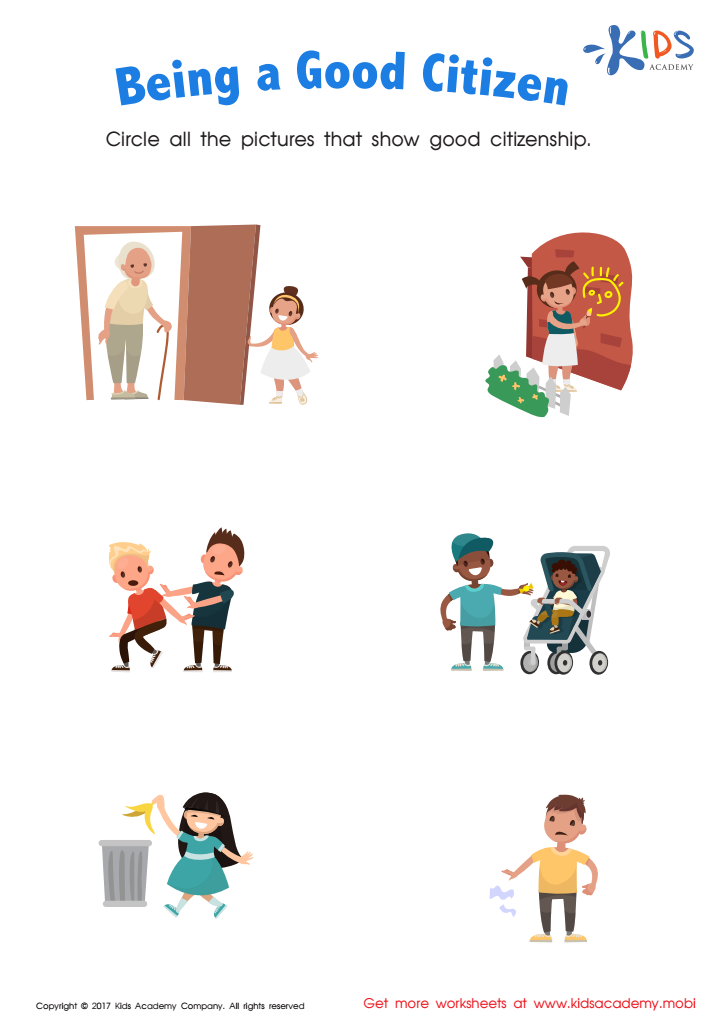

Being a Good Citizen Printable
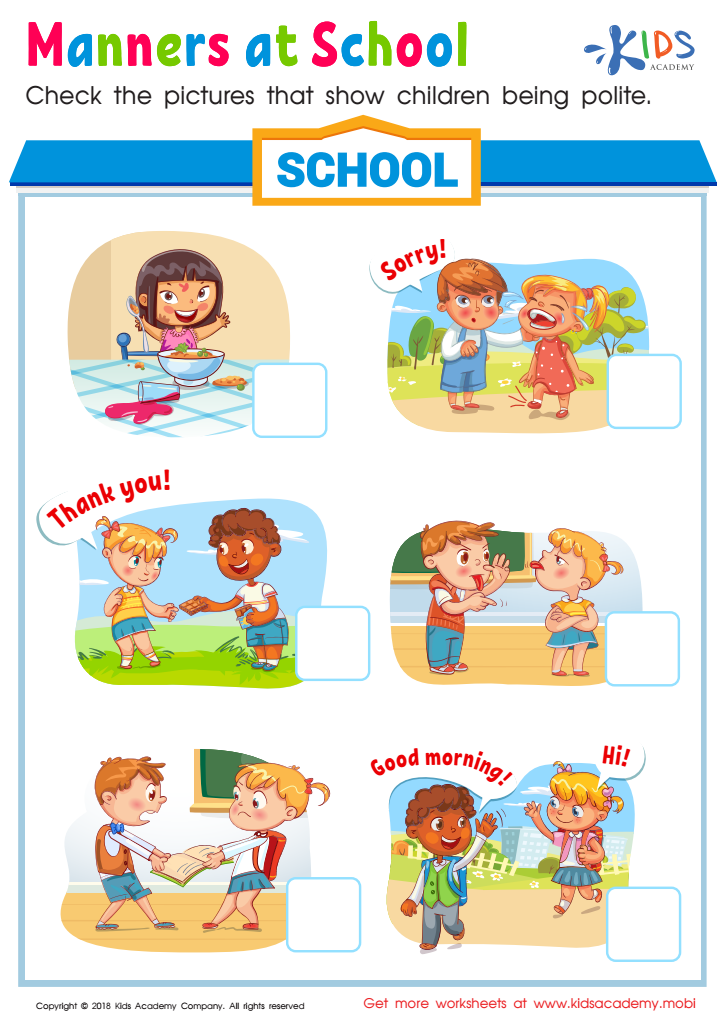

Manners at School Worksheet
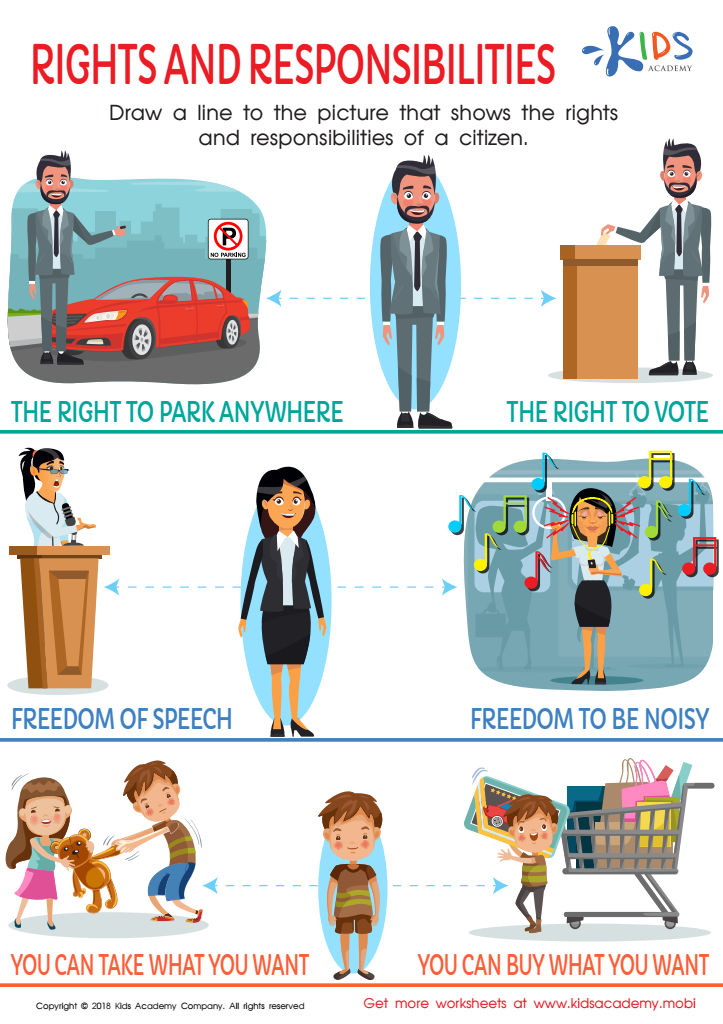

Rights and Responsibilities Worksheet
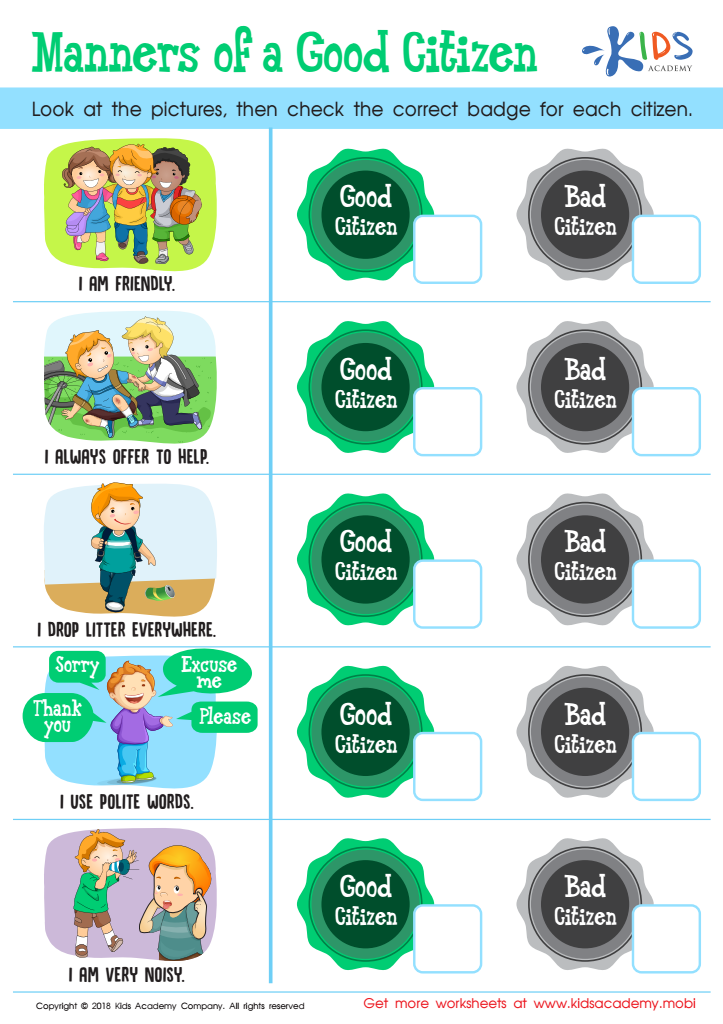

Manners of a Good Citizen Worksheet
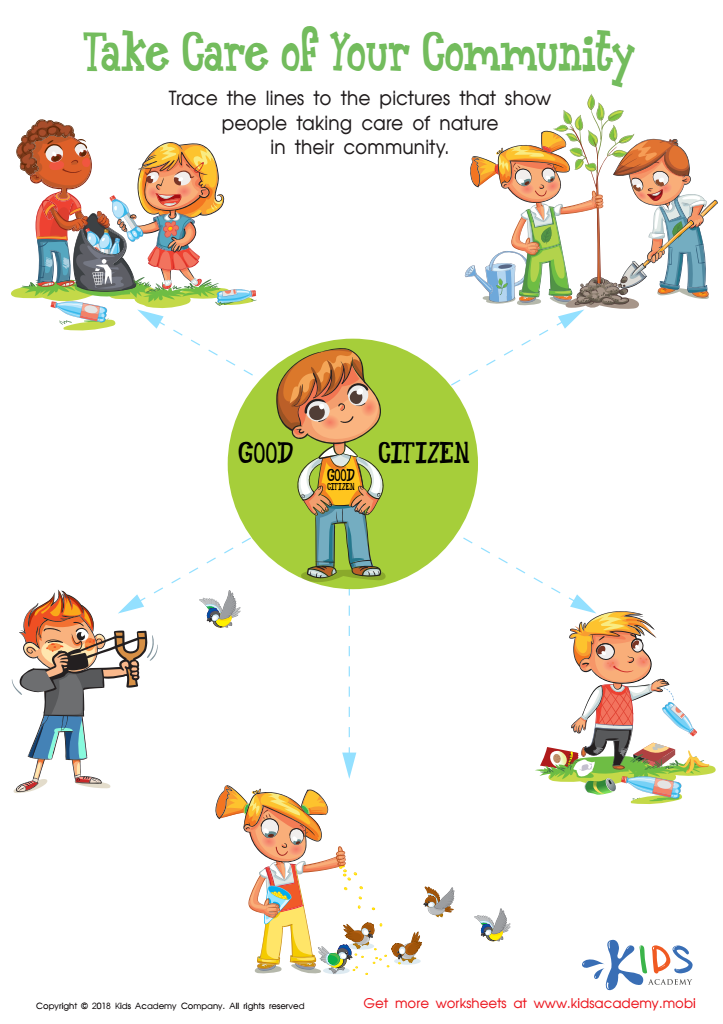

Take Care of your Community Worksheet
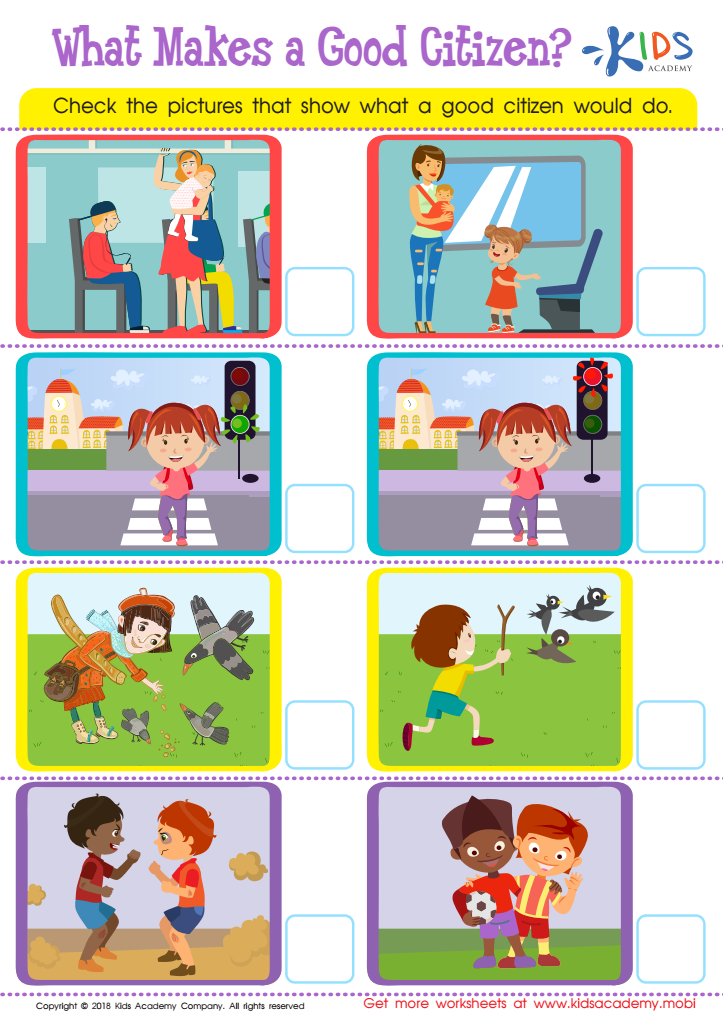

What Makes a Good Citizen? Worksheet
Normal good citizenship is vital for children aged 4-9 as it lays the foundation for their social, emotional, and moral development. During these formative years, children are like sponges, absorbing lessons from their surroundings, including values such as respect, responsibility, and kindness. Teaching good citizenship encourages them to understand their role within a community; it helps them recognize that actions have consequences, fostering empathy toward others.
Parents and teachers play a crucial role in modeling and instilling these values. Engaging children in activities like helping others, community service, or simple gestures of kindness teaches them about cooperation and inclusivity. Kids learn through observation, so seeing adults demonstrating good citizenship inspires them to emulate similar behaviors.
Moreover, instilling good citizenship early on contributes to a positive classroom and societal atmosphere, creating a sense of belonging among peers. It promotes conflict resolution skills and the ability to communicate effectively, which are vital in personal and professional life.
In essence, nurturing normal good citizenship in young children not only cultivates future responsible citizens but also creates harmonious environments, making it essential for parents and teachers to prioritize these lessons in their interactions and teachings.

 Assign to My Students
Assign to My Students

















